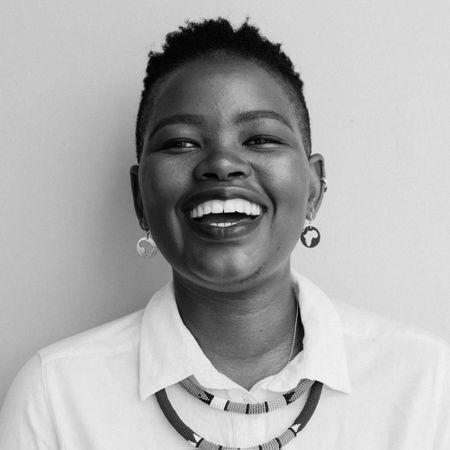Indigenous midwifery is as ancient as humanity itself. I am a second-year Health Sciences PhD candidate at Stellenbosch University, and living between Bulungula, Xhorha Mouth, and Mqele in Elliotdale, Eastern Cape as I do, my research focuses on indigenous knowledge health systems, looking into the resilience of the indigenous healers of AmaBomvana in Elliotdale.
I recently encountered a community health worker (CHW) who is/was also an indigenous midwife. I say was because, back in the day, when giving birth at home was no issue, Mam Qabaza birthed numerous babies – she has grown men and women who have passed through her hands.
However, these days people of her kind are chastised for even assisting during emergencies.
I have met her before, and she told me then about how the Department of Health has absorbed many people like her into being CHWs. It almost sounds as though the department did not quite know what to do with indigenous midwives, so they fitted some into looking after the sickly in their villages.
That is of course at the expense of home birthing and ensuring that pregnant women are looked after, which in turn burdens the hospitals to the point of subjecting these women to maltreatment and lots of trauma thereafter.
In the village public hospitals, there are numerous cases of women who are left to fend for themselves alone during labour, others giving birth on hospital floors due to neglect and lack of space.
Mam Qabaza’s home is not far from the Xhorha River where women cross on their long walk to the nearest hospital. She tells me she has birthed many babies whose mothers couldn’t walk any more due to labour pains.
One time she says, a young woman who was pregnant with her first baby crumpled and fell not so far from her house. She was panting, her legs shaking from labour pains. The two older women who were with her shouted for Mam Qabaza’s help.
She rushed to see the situation; she says she forced the pregnant woman to keep walking because she feared being arrested. In her own words, “urhulumente akafuni sibelekise” – “the government doesn’t want us to birth children”.
She eventually had to help because the woman’s water broke, and she rushed to her house and grabbed gloves and a plastic bag. The rest was history – she helped the lady to deliver a baby as she has done with so many babies for decades. But the sad thing is that the skill she and others have is fast becoming extinct. She counts many deceased women among those she used to work with – if we don’t do anything about this prestigious skill, it will soon disappear.
Still in the village, we recently had a case of a young woman who went into fast labour. The local taxi was called and she was loaded on the bare back of a bakkie (without a canopy) with just a light blanket as a mattress.
Fortunately, her family asked Madingatha, a local midwife, to jump in with her and her sister. It was barely 10km into the drive when she said “intlupha ichithekile”- the water has broken.
Madingatha ordered the woman’s sister to go to a home by the roadside to get a blade for the delivery. She did the work and bouncing healthy twins (a boy and a girl) were born.
Now, imagine if Madingatha had been equipped with the right tools from the Department of Health – the women wouldn’t even have had to take the rough ride on the back of the bakkie. The mother would have given birth somewhere in the comfort of her home aided by the midwife. There would be a way for the local midwife to register the birth and send them to the nearest hospital the following day, perhaps.
It is not enough for the Department of Health to “recognise” indigenous healing, they must also set up practical and functional spaces in villages that make it easy for the patients’ needs.
On 19 June 2024, I decided to follow a 40-year-old, eight-months pregnant Nobom Bhukwana from Bulungula to Nkanya Clinic, which is 7km away. She often talks about her journey, crossing the Xhosa River on an old, small boat, and then walking through forests to get to the nearest clinic that has prenatal care.
There is a local clinic founded by a local organisation, but it does not provide prenatal care and it’s been a while since the government promised to intervene in that. So heavily pregnant women must trek very long distances, only to get to the other side to wait for more than three hours before they get help. This is the reality of pregnant women in the deep rural areas.
I am left with a question: how could the government force women to all give birth in hospitals, considering the distances they must walk, and the maltreatment they receive?
Some argue that the department should train indigenous midwives in biomedical ways of birthing. But why should they be forced to, why not learn from their centuries of experience?
Why not rather approach it as a knowledge exchange between the indigenous and the biomedical midwifery? Why are indigenous people regarded as clean slates that must be populated with knowledge?
There should be a way for indigenous midwives to be recognised and allowed to complement the national health system. They are physically the closest to the people and usually the first point of contact when there are birth emergencies.
Equipping and recognising them will be for the wellbeing of rural women far from hospitals. DM




